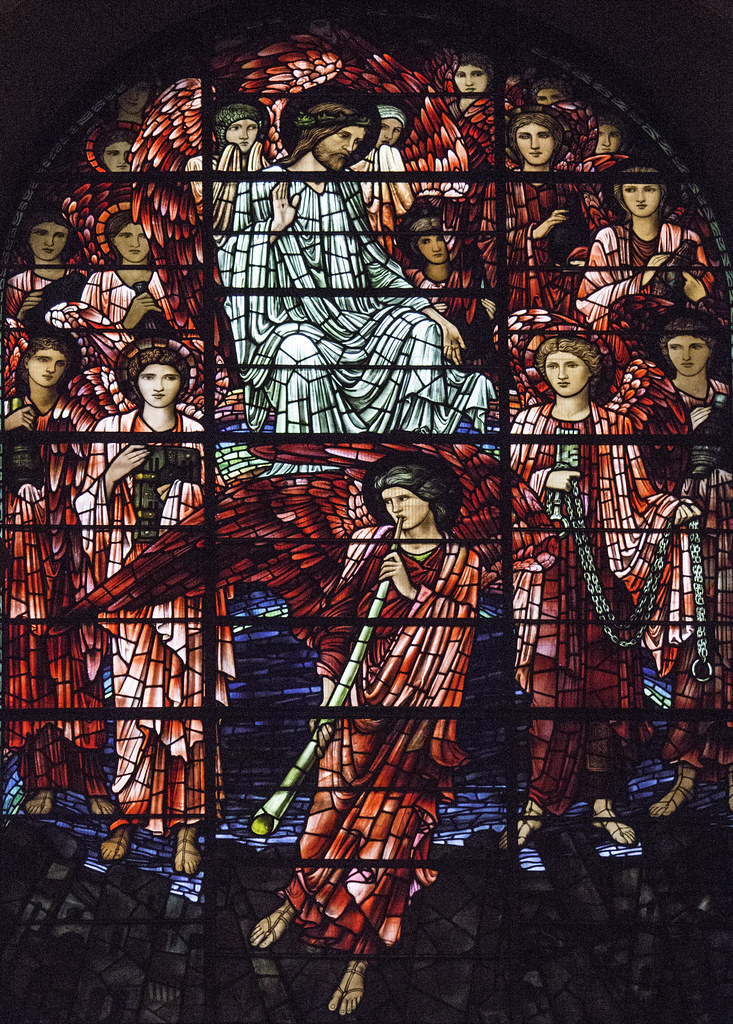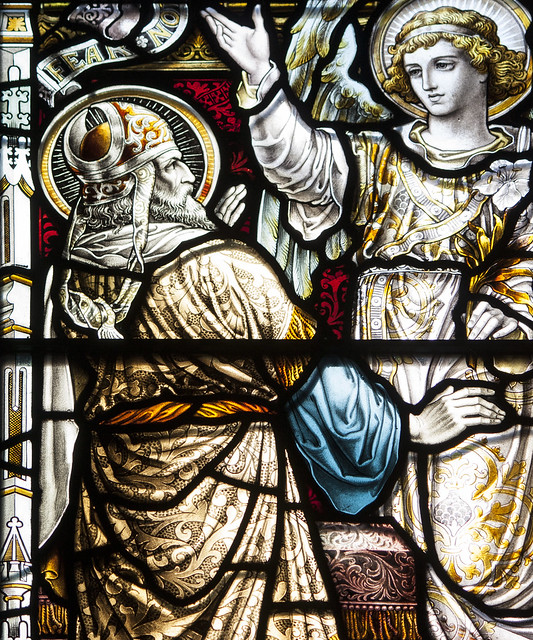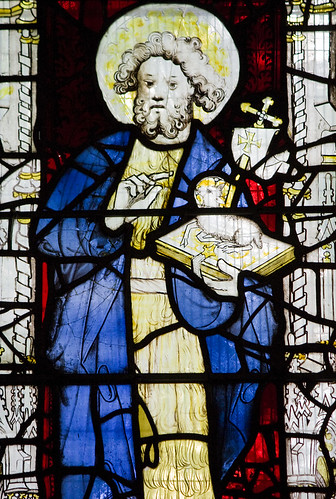‘Blessed be the Lord the God of Israel.’ So begins the Gospel of Christmas Eve, the song of Zechariah, father of St. John the Baptist. These are the first words Zechariah speaks after his being struck mute by the angel, for his lack of belief in the foretold conception of his son, John.
It might be presumed that any praise would be offered in thanksgiving for birth of a boy, or even for the end of an ordeal. However, St. Luke tells us that in fact these are not the mere words of a man but the song of the Holy Spirit, who filled Zechariah and bestowed upon him the power of prophecy. For Zechariah does not speak first of his new born son, as we might expect, rather he says, continuing from before, ‘for he has visited his people and redeemed them.’ The new prophet sings of Jesus as if he had already been born; he talks about his mission as if it had already been completed.
St. Luke’s Gospel is, in many ways, the most like a conventional story, it has a straightforward and easy to follow narrative. However, from a story-reader’s point of view it does seem to have a slight flaw: St. Luke gives away the ending right at the start! Zechariah announces to all around him what he has seen; the coming of the saviour, his victory over evil and the reconciliation of man with God. Though it is St. John who prepares the way for the Lamb, it might be thought that his father rather stole his thunder.
Is it somewhat curious that this is the Gospel for the final day of Advent? Advent, a season of preparation and anticipation is crowned with a reading that seems to undermine all that excitement. Before we get to the Nativity of Our Lord we are told, in a sense, “and they all lived happily ever after.” Isn’t this robbing us of the fruits of our eager anticipation? Don’t we get the ending before we are ready?
Perhaps the reason for this peculiar anti-climax is to serve as a lesson. We could rejoice in the joy of the redemption before it was accomplished, as Zechariah did, because the redemption of man was never in doubt. It was always in God’s hands. As Zechariah said, ‘thus he has shown the mercy promised to our ancestors, and remembered his Holy Covenant’. Any person who shares the faith of Abraham knows this, though sometimes only implicitly, that the God of Israel does not fail, and he shall never abandon his people.
Of course, this fact is constantly in the mind of the Church throughout the Advent season, as she sings her Advent Prose, the Rorate Caeli. The Rorate calls upon God to see the affliction of his people, to consider their pitiable state and to send to them the one who can lift the yoke of their captivity. This petitionary prayer, based upon the words of Isaiah, allows the Church to liturgically recreate the sense of longing and desire held by those holy prophets from of old. However, like St. Luke’s Gospel, it too has its Zechariah moment. At the end of the prayer, God responds:
‘Be comforted, be comforted, my people; thy salvation shall speedily come. Why wilt thou waste away in sadness? Why hath sorrow seized thee? I will save thee; fear not: for I am the Lord thy God, the Holy One of Israel, thy Redeemer.’

On the last day of Advent the Church proclaims with Zechariah the truth which all the children of Abraham have rejoiced in, that the Holy One of Israel is God indeed, and he shall save us from our sins.
So, by taking time to prepare ourselves to mark the Incarnation we learn what it means to be repentant, what it means to trust in the Lord’s goodness and even, through Zechariah, how we can rejoice in God’s bounty before we have received it in its fullness.
Now, Advent doesn’t really stop on Christmas Eve, it doesn’t even stop at the Nativity of Our Lord. In fact, it points forward to the end of time, to the return of Jesus Christ. The Church teaches the faithful through her liturgy to pray for his return in genuine humility, with reverent fear but also with joyful hope. Like those who cried out for the Redemption we too sin, we are brought into periods of trial and often find ourselves wasting away in grief. However, Advent has taught us how to get through this, by looking to the Lord’s second coming and trusting that he will save us from our iniquities, if only we turn away from sin and cry out each day, ‘Drop down dew, ye heavens, from above, and let the clouds rain the Just One.’


No comments:
Post a Comment